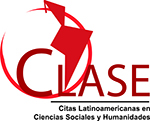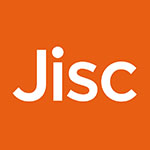About the Journal
POLICIES
The Revista Política Austral is a biannual scientific publication from the School of Government, Politics, and International Relations at Austral University. Its mission is to disseminate the results of original and unpublished scientific research on topics in political science and international relations. The journal features an Editorial Committee and an Advisory Academic Council made up of top-level professionals.
The RPA is available in both print and electronic formats. The electronic version reflects the University's commitment to the open access policy, which allows the material to be downloaded, distributed, copied, and printed without any restrictions. This approach promotes free and unrestricted access to information, removing any economic, technical, or legal barriers for all readers.
Scope and Focus
The Austral Political Journal (APJ) focuses on political reality on both internal and external levels. It explores the political phenomenon as the result of three relationships: between the governed and the governing, public and private sectors, and friends and enemies. Therefore, its audience includes anyone interested in the evolution of the world, nations, society, family, and individuals. The journal encourages reflection from researchers, academics, politicians, officials, business professionals, and undergraduate and postgraduate students, offering a space for scientific reflection as well as data and analysis necessary for the formulation and development of public policies.
Periodicity and Format
The RPA is published biannually (January-June and July-December) and is primarily edited in Spanish, though it accepts articles in English, with translation at the discretion of the Editorial Committee.
Manuscript Selection
Submitted works will be received and reviewed by the Editorial Committee, which will ensure their relevance to the focus and scope of the Austral Political Journal. The committee will also evaluate the originality, significance, academic quality, and scientific interest of the submissions. The Editorial Committee will decide whether to accept or reject the articles and will communicate their decision to the authors. Rejected articles may be appealed for reconsideration by the same committee within ten days of the author's notification.
Manuscripts must be original and unpublished works that have not been partially or fully published in print or electronic format, nor submitted for review for publication in any other medium.
Articles and contributions from the entire national and international scientific community are accepted without article processing charges (APC) or any other fees. Similarly, no submission fees are required.
Plagiarism Detection
The Revista Política Austral will reject any articles found to be plagiarized. To ensure this, the Editorial Committee and the executive director conduct a rigorous review of all submitted manuscripts.
The initial check is performed upon receiving the article, with a review by members of the Editorial Committee and an initial verification against the authors' other publications to detect any ethically inappropriate or questionable conduct.
Furthermore, manuscripts are also reviewed using the anti-plagiarism software Compilatio Magister+, which detects textual similarities, potentially plagiarized content after it has been translated, texts generated by artificial intelligence (ChatGPT, Gemini, YouChat) and reformulations or attempts to manipulate the text so that it cannot be seen by the naked eye.
Additional and specific checks are conducted by peer reviewers, who are provided with guidelines and practical instructions to review the article and detect possible plagiarism. Finally, during the style correction and editing phase, further checks are applied to the article.
If a new version of a previously published article is submitted, the author(s) must note this in the first footnote, and the new version must be justified (e.g., includes new developments, reuses a valuable article previously published in a language not covered by the journal, or other reasons).
If plagiarism or self-plagiarism is detected, the articles will be rejected and returned to the author with a detailed and reasoned decision identifying the infraction committed.
Peer Review System
Submitted articles will go through a selection process via a double-blind peer review system, conducted by experts in the various specialties and subjects covered by the Austral Political Journal (RPA). This process is as follows:
The initial review is conducted by the Editorial Committee, which determines whether the article meets the previously outlined general standards. The committee has the authority to reject an article without sending it to external reviewers.
In the second stage, the article is sent to two anonymous external reviewers who are not affiliated with our University, and the author’s identity remains anonymous. If the reviewers do not unanimously agree on whether to accept (as is or with modifications) or reject the article, the final decision will be made by the Executive Director of the journal.
The article may be accepted, accepted with requested changes, or rejected.
Reviewers have a maximum of one month to complete their review.
If corrections are required and accepted by the author, the final version of the article must be submitted within 10 days of the author’s acceptance.
Rejected articles cannot be resubmitted for a period of 6 months.
Reviews of bibliographic works and summaries of undergraduate and postgraduate theses for the various sections of the journal will not undergo the peer review process. However, they will be subject to prior and strict review by the Editorial Committee of the RPA. In certain cases, these contents may be referred to an external reviewer if the depth, length, and complexity of the work justify it.
Ethics and Good Editorial Practices
The Austral Political Journal adheres to the Code of Conduct and Best Practice Guidelines for Journal Editors by the Committee on Publication Ethics (COPE), a discussion forum for editors of peer-reviewed scientific journals (https://publication-ethics.org/resources/cope-core-practices/). The primary objective is to promote the integrity of academic research and its publications.
Disclaimer
The content of the articles is directly attributed to the author or submitter. Austral University and its academic units are not responsible for the authenticity, integrity, or credibility of the published articles.
Section policy
The sections of the Journal relate directly to the main areas of the School of Government, Politics and International Relations: politics, economics and society, international relations, parliamentarianism, public policy, smart cities and digital government, and environmental management.
a) Research articles.
b) Studies, papers, and situational analyses derived from research project results, presentations at congresses or
symposia, and situational analysis works with scientific backing.
c) Undergraduate and postgraduate theses that have received the highest grade awarded by an evaluation
committee and are recommended for publication.
d) Book reviews.
Copyright
Authors shall submit research or reviews stating that they have not been previously published in any graphic or digital media, guaranteeing Universidad Austral the right of first publication. Likewise, they shall state that the copyright has not been assigned to any other institution or individual and/or legal entity. The license of use shall be exercised according to the following terms and conditions:
PERMITTED USES. By submitting their ARTICLE, THESIS SUMMARY, or BOOK REVIEWS for publication in the RPA, the AUTHOR grants Austral University non-exclusive copyright, providing a free license to exercise the rights of reproduction, distribution, publication, public communication, availability, transmission, and/or deposit in the Institutional Repository or other trusted sites for digital preservation through printed and/or digital means. The Editorial Committee of Austral University is also authorized to make necessary formal and technical modifications to exercise the rights granted herein, as well as to assign the articles to the appropriate section. The University may commercially exploit the submitted works by selling individual copies and/or as part of a compilation. Each form of exploitation may be carried out by the licensee through any known methods, including printed and/or digital media.
MORAL RIGHTS. This license does not transfer moral rights, which remain with the AUTHOR in accordance with copyright law.
The AUTHOR declares and acknowledges under oath, which is considered given by the mere act of registering with the creation of their username and password allowing access to the RPA’s OJS system, that they are the author of the submitted ARTICLE, THESIS SUMMARY, or BOOK REVIEWS and the holder of the copyright licensed herein; that no commitments or encumbrances of any kind have been contracted in favor of third parties that would be incompatible with the transfer or that could infringe on the rights of the AUSTRAL UNIVERSITY; that the work is original, unpublished, and created without infringing on third-party rights; that the incorporated images, quotes, and/or transcriptions are properly referenced and authorized by their owner or covered by an exception or limitation to copyright; and that it does not contain defamatory statements against third parties or any content contrary to legal regulations. Additionally, as stated in the first paragraph of this section, the author declares that the manuscripts submitted for publication in the RPA have not been previously disseminated by any print or digital means, nor have the copyrights been transferred to any other institution or individual, whether physical or legal. Should the author authorize the publication of their work by other publishers or scientific or academic dissemination media after the guaranteed first publication, they commit to requiring that it be explicitly noted that it was previously published by the RPA, clearly and expressly stating the title, year of publication, volume number, pagination, DOI, and other identifying information.
EXTRATERRITORIALITY AND DURATION. This licence is governed by the laws of the Republic of Argentina and is valid throughout the national territory and in all other countries, for the maximum period of protection conferred on the work by copyright legislation.
This journal and its articles are published under the Creative Commons Attribution-NonCommercial-NoDerivatives 4.0 International (CC BY-NC-ND 4.0) license, which allows users to download, share, copy, and redistribute the material in any medium or format, provided that appropriate credit is given and a link to the license is included. The license does not permit the use of the content for commercial purposes, nor does it allow remixing or transforming the material, or the distribution of modified material without permission.
Digital Preservation Policies
The publisher of the Revista Política Austral (Austral University) employs various digital preservation strategies to ensure continuous and permanent access to published content for both readers and authors. One such strategy involves using the University's Institutional Repository, which aims to guarantee the accessibility, readability, and indefinite digital preservation of all housed works. To achieve this mission, the author grants the repository a license to deposit. Regular tasks performed by the repository include:
* Periodic backups on external servers.
* Monitoring and converting file formats.
* Updating the software that supports the repository.
* Periodic checks of file integrity to ensure the work has not been altered.
* Periodic checks of the work's accessibility.
* Inclusion of a persistent URL from Handle.net for the unequivocal identification and location of the work.
Content security is also achieved through the use of metadata that facilitates management within the preservation system, as well as utilizing independent collaborative systems (LOCKSS).
In addition, the journal is archived in Dialnet.



































